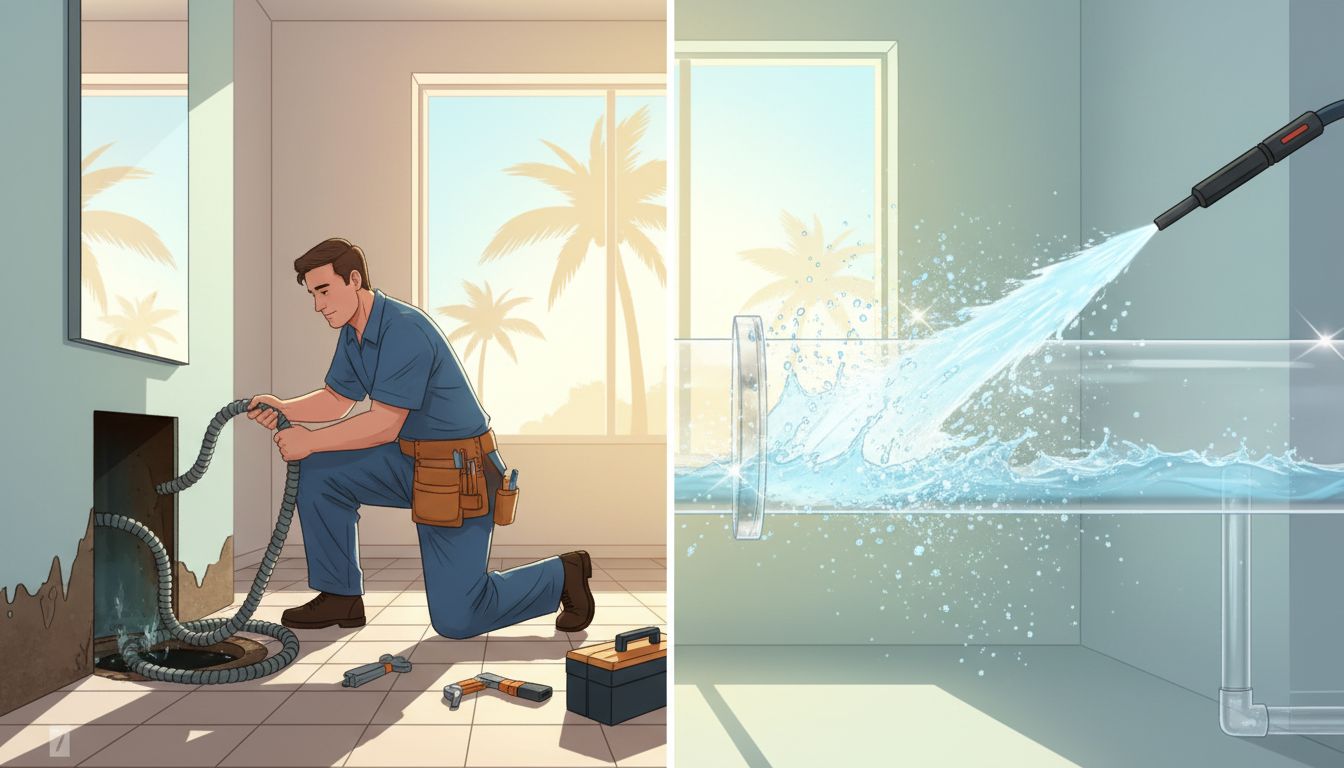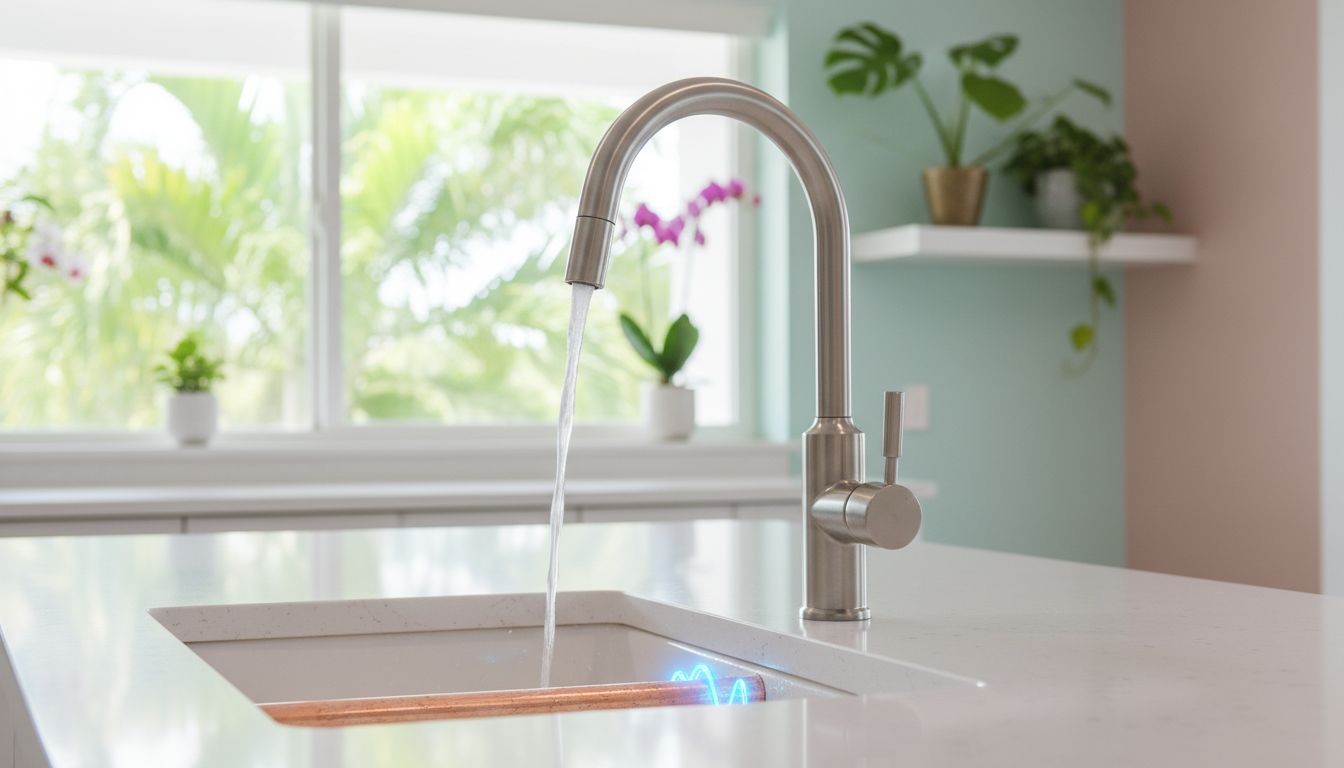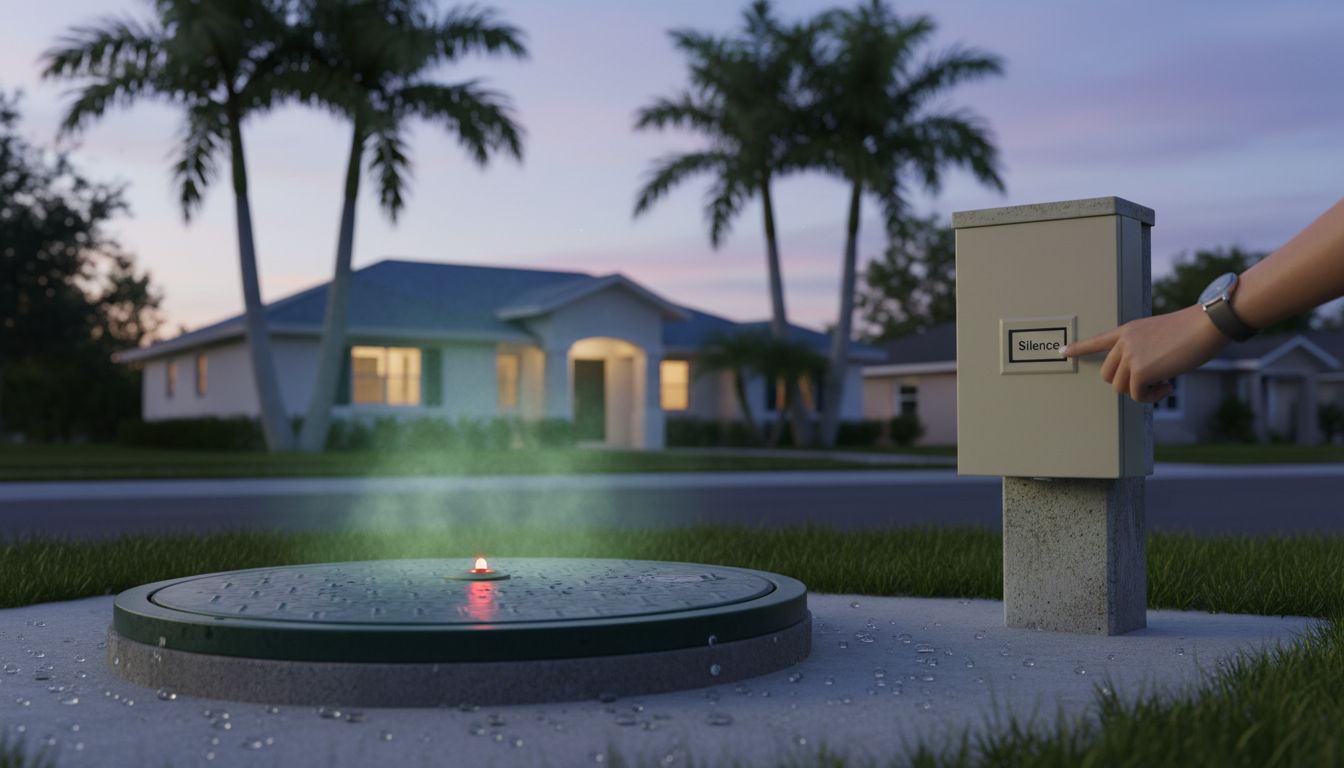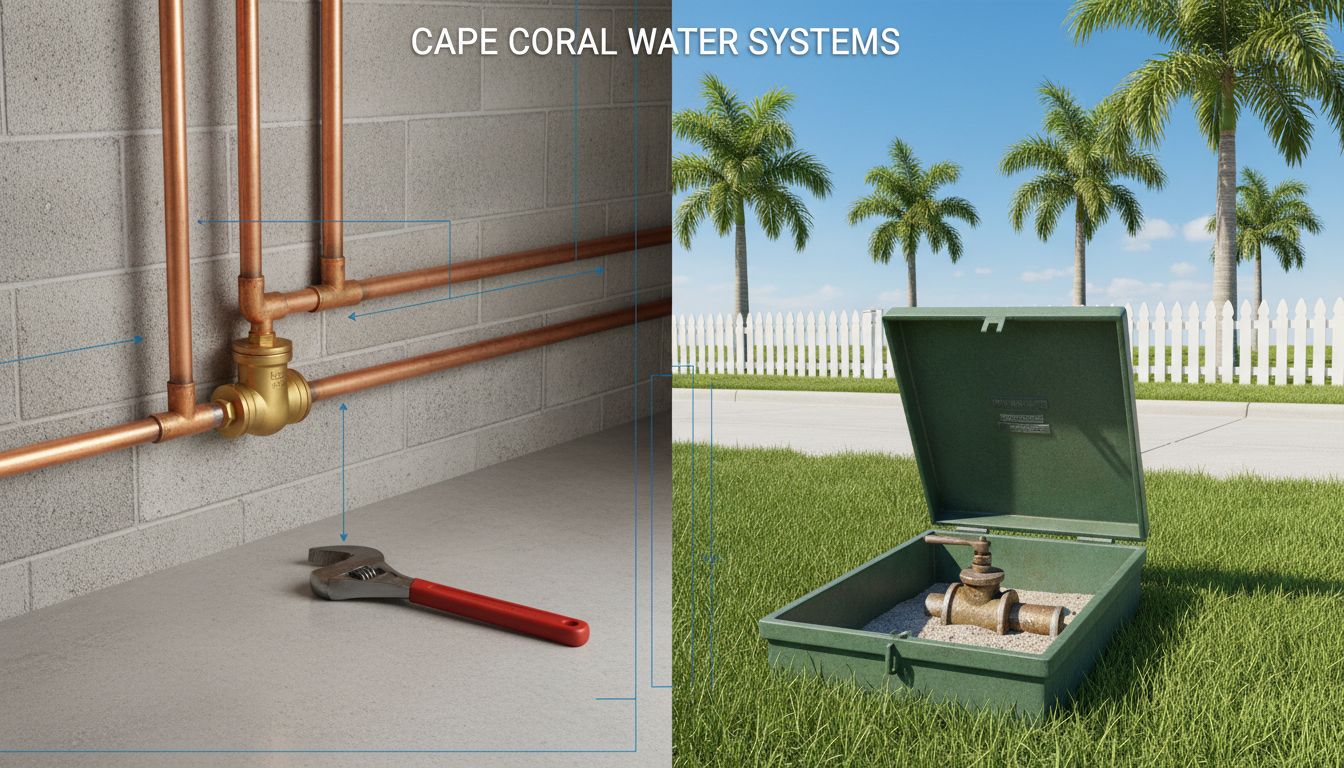Copper vs. PEX: Choosing the Best Pipe Material for Your Cape Coral Repipe
Copper vs. PEX: Choosing the Best Pipe Material for Your Cape Coral Repipe
Introduction to Pipe Materials for Repiping in Cape Coral
Many homes in Cape Coral, Florida, are prone to plumbing issues due to factors like aging infrastructure, hard water, and the area's humid, coastal environment. Over time, older pipes made of materials like galvanized steel can corrode or develop leaks, making repiping a necessary investment for homeowners who want reliable water flow and peace of mind. When it comes to replacing pipes, two popular options stand out: copper and PEX (cross-linked polyethylene). Each material has unique characteristics that make it suitable for different situations.
This article will help Cape Coral homeowners understand the differences between copper and PEX piping, focusing on key factors such as cost, durability, installation ease, and performance in local conditions. By the end, you’ll be equipped with the knowledge to make an informed decision about which material is best for your repipe project. Let’s dive into the details starting with copper piping.
What Is Copper Piping? History, Characteristics, and Usage
Copper piping has been a staple in American plumbing since the 1930s, prized for its durability and resistance to high temperatures and pressure. This metal pipe quickly became the industry standard due to its ability to last decades without significant wear, often outliving the homes it serves. Copper’s rigid structure makes it ideal for both water supply lines and gas lines, ensuring consistent performance even under challenging conditions.
Beyond its longevity, copper is known for its antimicrobial properties, making it a safe choice for drinking water systems. However, while copper remains a trusted option, it requires skilled labor for installation, which can increase costs. With this background in mind, let’s explore PEX piping, a modern alternative gaining popularity among homeowners.
What Is PEX Piping? Evolution and Benefits
PEX, short for cross-linked polyethylene, emerged in the 1980s as a flexible, cost-effective solution for plumbing needs. Unlike rigid copper, PEX is highly adaptable, allowing it to bend around corners and fit into tight spaces without the need for additional fittings. Its flexibility reduces installation time and minimizes the risk of leaks at joints, making it a favorite among contractors and DIY enthusiasts alike.
In addition to being easier to work with, PEX is resistant to scale buildup and freeze damage—a crucial advantage in areas with fluctuating temperatures. While it may not have the same historical reputation as copper, PEX’s growing track record proves it’s a reliable choice for modern homes. Now that we’ve covered both materials, let’s compare their lifespans and durability.
Comparing Lifespan and Durability: Copper vs. PEX
When it comes to lifespan, copper typically lasts between 50 and 70 years, while PEX generally offers 30 to 50 years of service. Copper’s longevity is attributed to its resistance to corrosion and ability to withstand extreme pressures. However, in areas with aggressive water chemistry, copper pipes can develop pinhole leaks over time , reducing their effective lifespan.
On the other hand, PEX is less susceptible to chemical corrosion but may degrade if exposed to UV light or rodents. Both materials have their strengths and weaknesses, so understanding your home’s specific conditions is essential. Next, we’ll examine the financial aspects of choosing copper versus PEX.
Cost Considerations: Installation and Long-Term Value
Copper piping tends to be significantly more expensive than PEX, with costs ranging from $2 to $4 per linear foot compared to PEX’s $0.50 to $1.50. Labor costs also differ dramatically ; installing copper involves soldering and precise fitting alignment, which requires specialized skills and more time. In contrast, PEX’s simpler installation process translates to lower labor expenses.
While copper’s higher upfront cost might seem daunting, some homeowners view it as a long-term investment due to its durability and potential to boost resale value. Conversely, PEX’s affordability and efficiency make it appealing for those on a budget. As we move forward, we’ll discuss how these materials perform in Cape Coral’s unique climate.
Performance in Cape Coral’s Climate and Water Conditions
Cape Coral’s coastal environment presents challenges like high humidity, salty air, and hard water—all of which can impact pipe performance. Copper pipes are prone to corrosion when exposed to acidic or mineral-rich water, leading to potential leaks. Homeowners may also notice greenish stains on fixtures caused by copper oxidation.
PEX, however, resists mineral buildup and doesn’t react with water chemistry, making it a better match for Cape Coral’s conditions. Although PEX isn’t immune to all environmental factors, its resistance to scaling gives it an edge in hard water areas. Moving on, let’s consider how each material affects the installation process.
Ease of Installation and Project Disruption
Installing copper pipes is labor-intensive because they require cutting, soldering, and securing with rigid fittings. This process can take several days, depending on the size of the project, and may disrupt daily life as walls and floors are opened up to access existing plumbing.
In contrast, PEX’s flexibility allows installers to snake it through walls and ceilings without extensive demolition, completing the job faster and with less mess. For homeowners looking to minimize inconvenience, PEX is often the preferred choice. Speaking of preferences, safety and water quality are also critical considerations.
Safety, Health, and Water Quality Considerations
Copper pipes are renowned for delivering clean, great-tasting water thanks to their natural antimicrobial properties. They rarely affect water taste or odor, making them a trusted option for drinking water systems. However, improper installation or acidic water can cause trace amounts of copper to leach into the water supply.
PEX pipes, though safe for potable water, have raised concerns about possible chemical leaching during certain conditions. Most manufacturers have addressed these issues, but it’s still worth verifying certifications before purchasing. Understanding these nuances helps ensure your family’s health and comfort. Let’s now turn our attention to environmental impacts.
Environmental Impact and Sustainability
Copper is fully recyclable, making it an environmentally friendly option for eco-conscious homeowners. However, mining and refining copper consumes significant energy and resources, contributing to its carbon footprint. On the flip side, PEX manufacturing uses less energy and produces fewer emissions, but its plastic composition raises questions about long-term waste management.
Both materials have trade-offs, and choosing one depends on your priorities—whether sustainability or reduced production impact matters more to you. Before finalizing your decision, let’s review common maintenance needs for each type of pipe.
Potential Issues and Maintenance Needs
Copper pipes are susceptible to pinhole leaks caused by electrolysis or aggressive water chemistry, requiring vigilant monitoring and occasional repairs. Mineral scaling can also build up inside copper pipes, restricting water flow and necessitating periodic descaling.
PEX pipes face different challenges, such as vulnerability to UV light and rodent damage. While maintenance is minimal, homeowners should inspect exposed sections regularly and address any signs of wear promptly. With maintenance covered, let’s examine which scenarios favor copper or PEX.
Project Suitability: When to Choose Copper or PEX
Copper shines in applications where heat resistance and structural integrity are paramount, such as outdoor plumbing or areas exposed to direct sunlight. It’s also favored for upscale homes where its premium image enhances resale value.
For complex layouts, tight budgets, or freeze-prone regions, PEX is often the smarter choice. Its flexibility simplifies installation, and its affordability makes it accessible for most homeowners. Knowing when to use each material ensures optimal results. Before proceeding, let’s touch on licensing and code compliance.
Licensing, Codes, and Professional Recommendations
Building codes in Cape Coral dictate specific requirements for repiping projects, including approved materials and installation standards. Always consult a licensed plumber to ensure compliance and avoid costly mistakes. Professionals can provide tailored advice based on your home’s layout and local regulations.
Frequently Asked Questions
How long do Copper and PEX pipes really last in Florida homes?
In Florida’s humid climate, copper pipes typically last 50–70 years, while PEX averages 30–50 years. Factors like water quality, maintenance, and environmental exposure can influence these ranges, so regular inspections are recommended.
Which pipe material is better at handling Cape Coral’s hard water?
PEX excels in hard water environments due to its resistance to mineral buildup. Copper, while durable, may experience scaling and corrosion over time, requiring more frequent maintenance.
Is PEX approved for use in all types of residential repipes in Cape Coral?
PEX is widely accepted for residential repiping in Cape Coral, but restrictions may apply in certain neighborhoods or HOAs. Check local building codes and consult a licensed plumber for confirmation.
Are there health or safety risks associated with either copper or PEX pipes?
Copper is generally safe but can leach small amounts of metal under certain conditions. PEX is certified for potable water but may raise concerns about chemical leaching. Both materials meet industry standards when properly installed.
How do I decide which material is best for my Cape Coral home repipe?
Consider your budget, home layout, future plans, and professional recommendations. Weigh factors like cost, durability, and ease of installation to determine the right fit for your needs.
Conclusion: Choosing the Right Pipe Material for Your Cape Coral Repipe
Choosing between copper and PEX involves balancing longevity, cost, and practicality. Copper offers unmatched durability and prestige but comes at a higher price. PEX provides affordability and ease of installation, making it ideal for many modern homes. Ultimately, the best choice depends on your specific circumstances and priorities.
To ensure a successful repipe, consult a licensed Cape Coral plumbing professional who can assess your home’s unique needs and recommend the optimal solution. Making an informed decision will help guarantee a reliable, long-lasting plumbing system that meets your expectations and complies with local regulations.




Get a Free Estimate
Got a plumbing issue? We’re here to help! Whether you need emergency repairs, routine maintenance, or have a question about our services, our team is ready to assist you.
